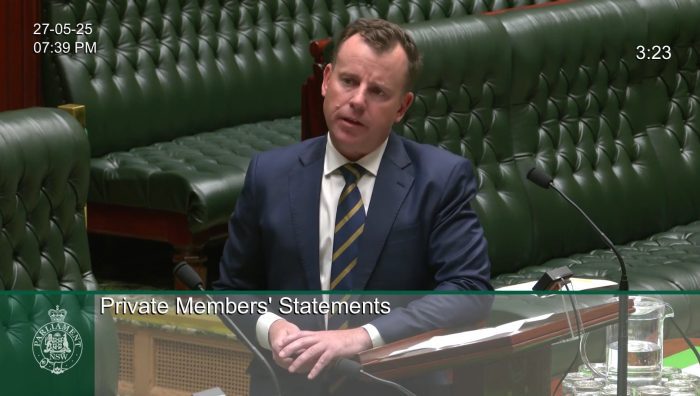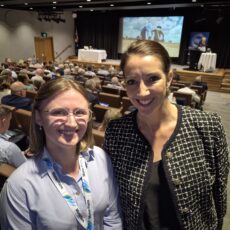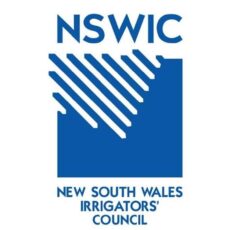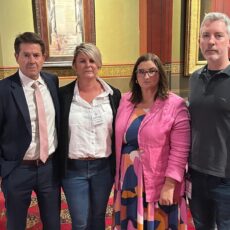Member for Northern Tablelands Brendan Moylan has urged the NSW government for more targeted action to address on the escalating problem of feral pigs across the Northern Tablelands.
Mr Moylan delivered a Private Members’ Statement in Parliament last month addressing concerns on the increasing number of feral pigs and the impact they are having on landholders.
“Current estimates indicate there could be 100 million feral pigs in Australia,” Mr Moylan said.
“In my electorate we have had a run of good seasons.
“That has been great for our farming communities, and for our communities in general, but those good seasons have seen the population of feral pigs explode.”
Mr Moylan said large numbers of feral pigs have been destroying farming land, harming livestock, and been wreaking havoc on the region’s roads.
“Feral pigs are causing absolute carnage and destruction,” he said.
“They are causing widespread devastation with attacks on livestock, such as lambs and calves.
“They also get into crops and cause huge amounts of damage.”
Mr Moylan said current control measures are failing to keep up with the growing numbers.
“Estimates make it clear that unless we cull around 80 per cent of these feral animals per year, we will not get on top of the problem,” he said.
“It really is a significant concern.
“We are losing the battle because of the sheer numbers of these vermin right across our landscape.”
Mr Moylan called on the NSW government to increase funding for control programs and adopt more localised and targeted approaches to combat the rise in feral pig numbers.
“There is no point in NSW looking at a total approach across the board; we need targeted local campaigns, because once the shooters come through and the baiting and trapping are done, the pig populations breed back up faster than any of us can handle,” he said.
“We need to have a conversation in this place about the damage that these animals are causing to our natural and native landscape, and to our productive agricultural industries.”
NSW Premier Chris Minns has floated the idea of using bounties as a means to reduce feral animal numbers in the state.
Across NSW, feral animals cost farmers millions of dollars every year.
A previous Ag Econ report for North West Local Land Services, revealed feral pigs cost agricultural production in the North West an estimated $47 million in damage. The study focused on the winter 2020 and summer 2020/21 cropping periods.
NSW Farmers president Xavier Martin says all options need to be on the table to tackle the state’s feral animal problem, welcoming comments from the Premier.
“The problem of feral animals – such as pigs – is an escalating concern for farmers, and we would welcome a shared responsibility, including additional funding, to control these nasty pests,” Mr Martin said.
“Feral pigs, for example, cause millions in damage each year. They attack people and animals, they tear up paddocks, destroy fences, they really are incredibly nasty animals.
“It’s not just pigs – wild dogs and cats are a perennial problem that need to be controlled, and feral deer are an increasing problem.
“Online commentators who suggest we don’t need additional efforts in this area are seriously out of touch with the realities of the landscape.”
NSW had the highest number of feral mammal species in the nation, according to the Australian Bureau of Statistics, costing farmers millions each year in damage and production losses.
More funding to deliver coordinated, long-term, cross-tenure pest control programs across the state were critical, Mr Martin said, and all options needed to be on the table, including bounties, baits, trapping and aerial culls.
“We know animal pests are expected to cause damages in excess of $489 million annually by next year,” he said.
“That’s a staggering amount of money, and that’s why we welcome the Premier’s approach to look at every option to slash the number of feral animals.
“We know there’s going to need to be tight controls to ensure safety, uphold biosecurity and enforce authorisation, but NSW Farmers is prepared to work with government to get this right and solve this problem once and for all.”
To order photos from this page click here










